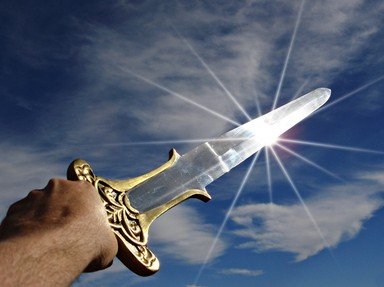Quiz Answer Key and Fun Facts
1. A: 1097-1098, First Crusade. The siege of this city was an impressive victory for the outnumbered Crusaders, who were on the verge of defeat.
2. B: 1944-1945, World War II. This battle in Belgium was a victory for the Allied powers of the United States, Great Britain and Canada.
3. C: 216 B.C.E, Second Punic War. This battle in southern Italy was a decisive victory for the smaller Carthaginian force led by Hannibal.
4. D: 249 B.C.E., First Punic War. This naval battle, which the Carthaginians won strengthened Carthage as a naval power in the Mediterranean but it was Rome's last major loss in the First Punic War.
5. E: 1942, World War II. This major battle of the Desert Campaign in World War II, taking place in Egypt, was a defeat for Erwin Rommel and his Axis army.
6. F: 1807, War of the Fourth Coalition. This battle was a victory for Napoleon's army against the Russian army and it caused the Treaty of Tilsit to be created.
7. G: 1915-1916, World War I. This campaign was a a major offensive, also called the Dardanelles Campaign, launched by the combined forces of the British and their colonies and the French.
8. H: 326 B.C.E, Conquests of Alexander. In which epic battle did Alexander the Great defeat King Porus in northern India and take over Punjab?
9. I: 333 B.C.E. In which battle did Alexander defeat Darius and the mighty Persian empire?
10. J: 1916, World War I. This battle was the largest naval battle in WWI.
11. K: 1880, Second Anglo-Afghan War. This battle was the last major battle of the war and the British took control of Afghanistan's foreign policy.
12. L: 1775, American Revolution. This battle was the first battle of the American Revolution where "the shot heard around the world" was fired.
13. M: 1526, Ottoman Conquest of Hungary. In this battle, the Ottomans took control of all of central Hungary, killing the ruler, King Louis.
14. N: 1798, French Revolutionary Wars. This was an important naval victory for Britain which defeated France in northern Egypt.
15. O: 1428-1429, Hundred Years' War. The battle ended in failure for the English and an inspiring victory for the French with Joan of Arc on their side.
16. P: 1941, World War II. This battle, which essentially brought America into the war, was between the Japanese and the U.S.
17. Q: 637, Muslim Invasion of Persia. This battle was a victory for the Arabs who were advancing further into Persia.
18. R: 1879, Anglo-Zulu War. This battle was a victory for the British who were attacked by Zulu warriors at a British post.
19. S: 1942-1943, World War II. This was a major battle in WWII, taking place near the Volga river, as the Soviets bravely defended their land from the Axis attackers.
20. T: 732, Muslims Invasion of Western Europe. This battle was an important victory for the Franks under Charles Martel, who stopped further Muslim progress into western Europe.
21. U: 1597-1598, Japanese Invasion of Korea. This battle ended in a stalemate between the invading Japanese and the defending Koreans/Chinese.
22. V: 1863, American Civil War. This was an important battle for the Union in the Civil War as they captured an important city on the Mississippi.
23. W: 1809, War of the Fifth Coalition. This was the most important battle of the fifth coalition.
24. Y: 1781, American Revolution. Which battle resulted in British surrender in the Revolutionary War?
25. Z: 1697, Ottoman-Hapsburg Wars. This battle ended in victory for the Austrians and made Eugene of Savoy a well known leader.
Source: Author
shahzy1022
This quiz was reviewed by FunTrivia editor
bloomsby before going online.
Any errors found in FunTrivia content are routinely corrected through our feedback system.

